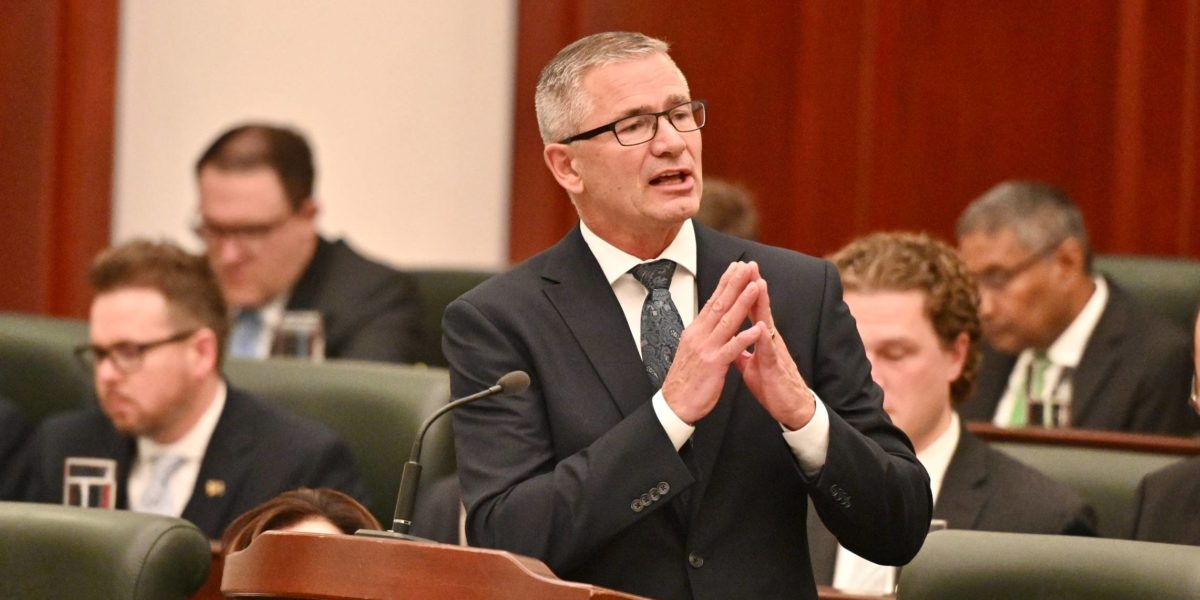“Conservative” governments never like to let a crisis go to waste.
Hence the concept of “disaster capitalism,” which author Naomi Klein so chillingly described in 2007 as the end result of the Shock Doctrine of modern neoliberal economics.
The COVID-19 pandemic, for example, was a tragedy for thousands of Albertans and Canadians and their families. But it also created a catastrophe in our health care system that is now being used by conservative governments across Canada to justify more privatization of public health care to, as Alberta deceptively claimed in a news release in late January, “ensure that Albertans have access to the care they need, when and where they need it.”
“Working with chartered surgical facility providers is another strategy to help Albertans get the surgeries they need faster,” said John Cowell, the sole administrator of Alberta Health Services appointed by Premier Danielle Smith. When he says chartered, by the way, he means private.
Everyone who is paying attention – and that would most certainly include Dr. Cowell’s nervous advisors at AHS – understands that is not what is going to happen when there is already a shortage of health-care professionals to do the surgeries.
This is easy to understand. It happens because private clinics draw limited resources and personnel from the public health care system, already under stress from the pandemic. The result in short order is faster treatment for a few patients with money and pull, and longer wait times for the rest of us.
As for the part about needing more money, as is well known, Premier Smith has a plan for that as well. She wrote an essay about it in 2021, too recently for her to claim it was just a youthful fling with a crazy idea. What we need to do to fix the health care system, she wrote, “is to generate $4 billion from new user fees.” (Emphasis added.)
“We can no longer afford universal social programs that are 100 per cent paid by taxpayers,” she argued in the paper, published by the University of Calgary’s notoriously right-wing School of Public Policy. “The only option is to allow people to use more of their own money to pay their own way …”
“Once people get used to the concept of paying out of pocket for more things themselves then we can change the conversation on health care,” she said. And a little later, “we could take it one step further. … If we establish the principle of Health Spending Accounts, then we can also establish co-payments.”
This plan appears to be being implemented before our eyes without much controversy.
Meanwhile, the UCP is apparently prepared to take the Shock Doctrine a step farther than has been observed in Canada and create a disaster of its own that will require a shock to correct – although, as Ms. Klein pointed out in her book, intentionally created disasters are not unheard of in other lands.
In an op-ed published by the CBC last week, University of Calgary economist Trevor Tombe wrote that Finance Minister Travis Toews’s February 28 budget is going to remake the famous Alberta energy rollercoaster a much more terrifying new ride.
“Spending is set to exceed $68 billion this year, higher than the government’s own previous plan of $64 billion for 2023-24 set only three months ago, and more than $9 billion more than what Budget 2021 envisioned for this year,” Dr. Tombe wrote. “It is even higher than the previous NDP government had planned to spend this year, if that party had remained in power.”
“The problem is that this new spending is paid for with an incredibly unreliable source: non-renewable resource revenues,” he continued, adding this understatement: “This is neither disciplined nor particularly responsible.”
He explained that with royalty rates rising as energy facilities pay off their initial capital investments, which were subsidized by the province through reduced royalty rates, each dollar change in oil prices is worth more to the government than before – or costs more, depending on which way the prices are moving.
Here is the money quote, as it were, from Dr. Tombe’s argument: “For the quarter-century before COVID, a $1 change in oil barrel prices typically meant less than a $200 million increase or decrease to government revenues. Today, that same change is worth $630 million. I estimate by 2025, it will be $850 million.
“If you thought the rollercoaster Alberta was on before was scary, just wait.”
In her essay, written when oil revenues were low, Premier Smith argued that was the perfect time “to permanently wean Albertans off their energy royalty dependence. … It’s time to bite the bullet and say that this is the most resource revenue we will ever spend on operational needs again.”
It doesn’t require a tinfoil hat to see that Mr. Toews’s budget is creating the conditions for a bigger bust than we’ve ever seen in Alberta.
And, as veteran Alberta political observers know well, that means a quick return to another brutal dose of austerity, privatization, and disaster capitalism.
First we create the shock. Then we implement the Shock Doctrine to restore “the Alberta Advantage.”
Well, perhaps this is just the UCP being innovative and forward looking. No natural disaster is required to justify bad economic policies.
We’re quite capable of generating our own disasters right here in quasi-sovereign Alberta!



